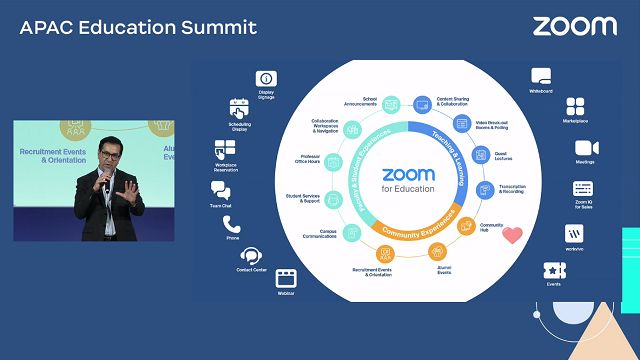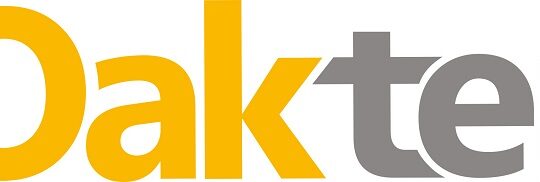
On 5 July 2023, Zoom held its annual Asia Pacific (APAC) Education Summit, focused on empowering flexible teaching and learning in today’s rapidly evolving education landscape. The event featured a keynote by Ricky Kapur, Zoom’s Head of Asia Pacific, where he discussed the challenges faced by educational institutions in adopting efficient technologies for teaching and learning as well as perspectives from the industry, including representatives from AARNet, the University of Newcastle, among others.
In his keynote, Kapur highlighted the importance of reimagining the education experience for flexibility. Digital advancements like smart campus administration, omni-experience student engagement and interconnected collaborative workspaces, are paving the way for the next generation of education to reshape the way we learn, connect, and thrive. As students, educators, and staff learning and teaching in an hybrid manner have distinct needs, educational institutions need to be able to tailor to these different environments. This includes catering to individuals whether they are physically in the campus, online, or a hybrid, as well as adapting to different types of learners such as large seminars, smaller group breakouts and 1:1 tutoring sessions. Several aspects of experience to consider include:
- Learning: Educators should go beyond offering blended or online classes and focus on creating richer and more immersive learning experiences. Assessing students’ understanding of concepts can also be done through project collaboration and polling, not just paper-based tests.
- Connecting: Communication outside of the classroom is vital. Students require greater accessibility to their teachers, including scheduled office hours for consultations. At the same time, administrators need to be able to connect and network with other stakeholders such as parents and alumni through events.
- Supporting: The pillars of “connect” and “support” go hand in hand to create an ideal educational experience. Institutions should strive to offer students a seamless journey from recruitment and enrollment to orientation and while they are in school. This means being able to deliver quick and efficient responses to general inquiries, or easily escalate to the right department when necessary.
- Working: Empowering staff members is crucial to enhancing the student experience. Technology should enable staff to work more productively and collaboratively, avoiding information loss during transitions. Having all the necessary information in one accessible place will be important to streamline workflows. Virtual platforms also have the potential to connect classrooms with subject matter experts worldwide to maximise knowledge sharing.
Ultimately, the education experience must evolve together with the expectations of modern students. In today’s digital age, students are prioritising convenience and simplicity, and want to be engaged in a way that mirrors digital interactions with their favourite brands. To meet these demands, school leaders must re-evaluate the way they communicate with students to ensure they stay attractive for enrollment – while navigating the use of different applications and tools employed amidst digital transformation. For example, Wall Street English, an international English language learning academy for children and adults who adopted Zoom’s Video Software Development Kit (SDK), was able to offer its students around the world a consistent, reliable and high-quality learning experience whether they were at home or at the learning centres
Geoff Lambert, Solution Consultant at AARNet, Australia’s Academic and Research Network, said that as universities navigate hybrid learning and teaching, leveraging collaborative platforms like Zoom can help them expand their reach to both domestic and international students. A hybrid approach also makes education more accessible, enabling students with hearing impairments to easily access live captions, both on or off campus. A consistent hybrid approach also assists those who are studying part-time by adding flexibility. On an administrative level, it helps institutions build resiliency and business continuity in the event of any disruptions. While some may see these changes as challenging, Geoff believes they present opportunities for innovative and creative approaches to campus facilities and to education and its supporting services.
Mark Jefferys, Solution Architect at the University of Newcastle shared that the Higher Education sector has faced many challenges when it comes to evolving the student experience in today’s digital age. Since partnering with Zoom, they have been able to provide faster and more convenient communication channels for staff and students beyond just meetings and lectures, allowing them to save time and resources to prioritise student enrolment and engagement. This is essential when adapting to strong competition and reduced government funding. He added that as everyone was already familiar with the easy-to-use Zoom platform, the university enjoyed a smooth migration to new Zoom solutions like Zoom Contact Center, while ensuring students can continue to enjoy a seamless and personalised experience on one integrated platform comprising Zoom Meetings, Zoom Phone and Zoom Contact Center.








